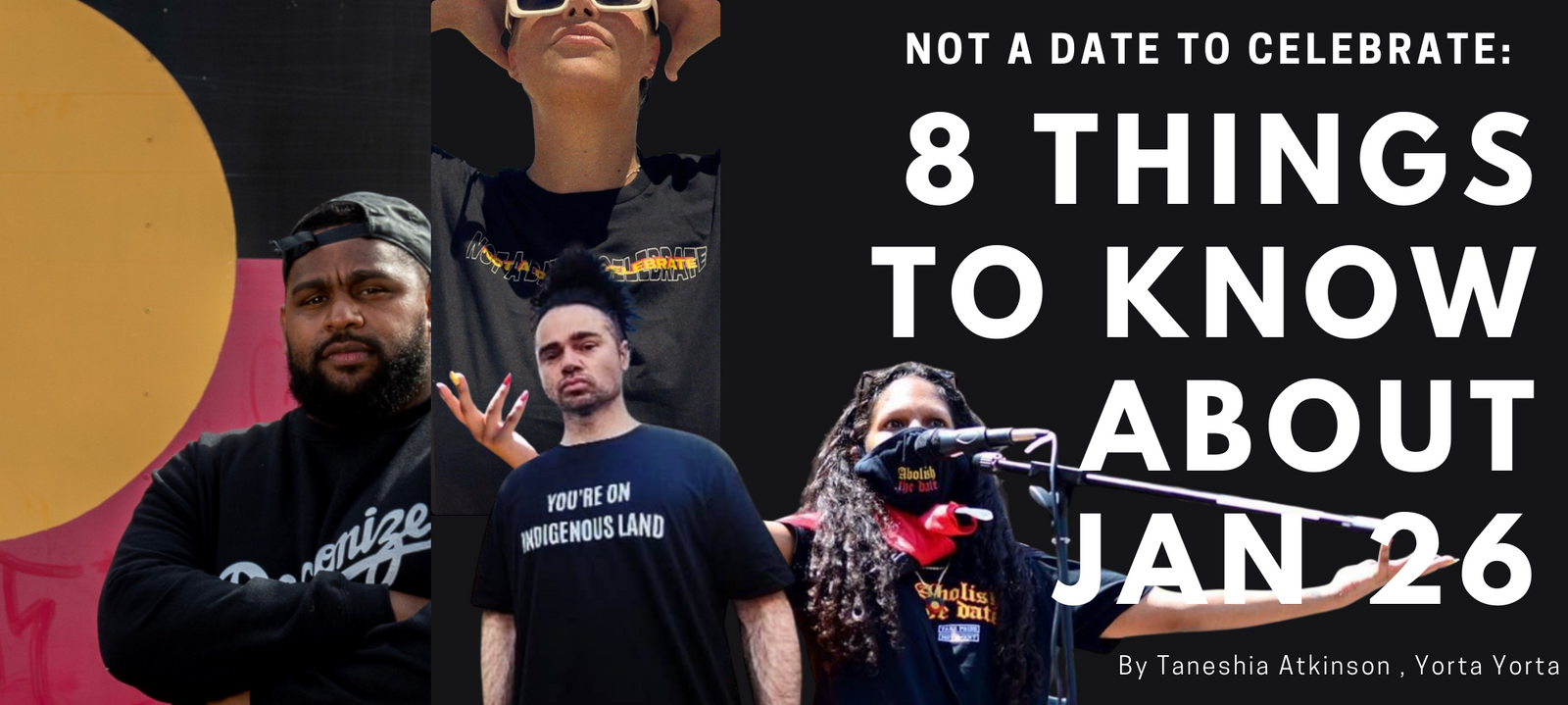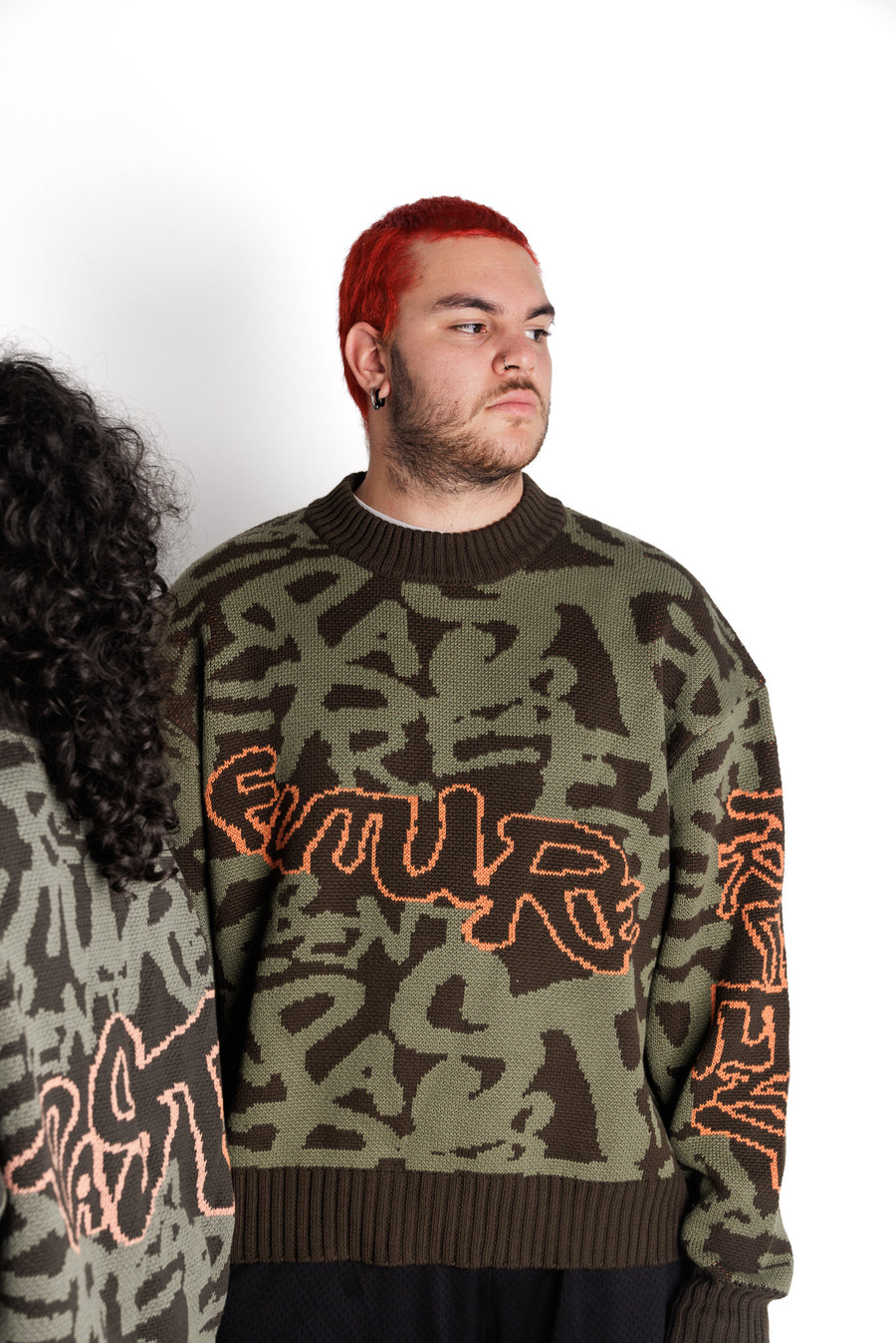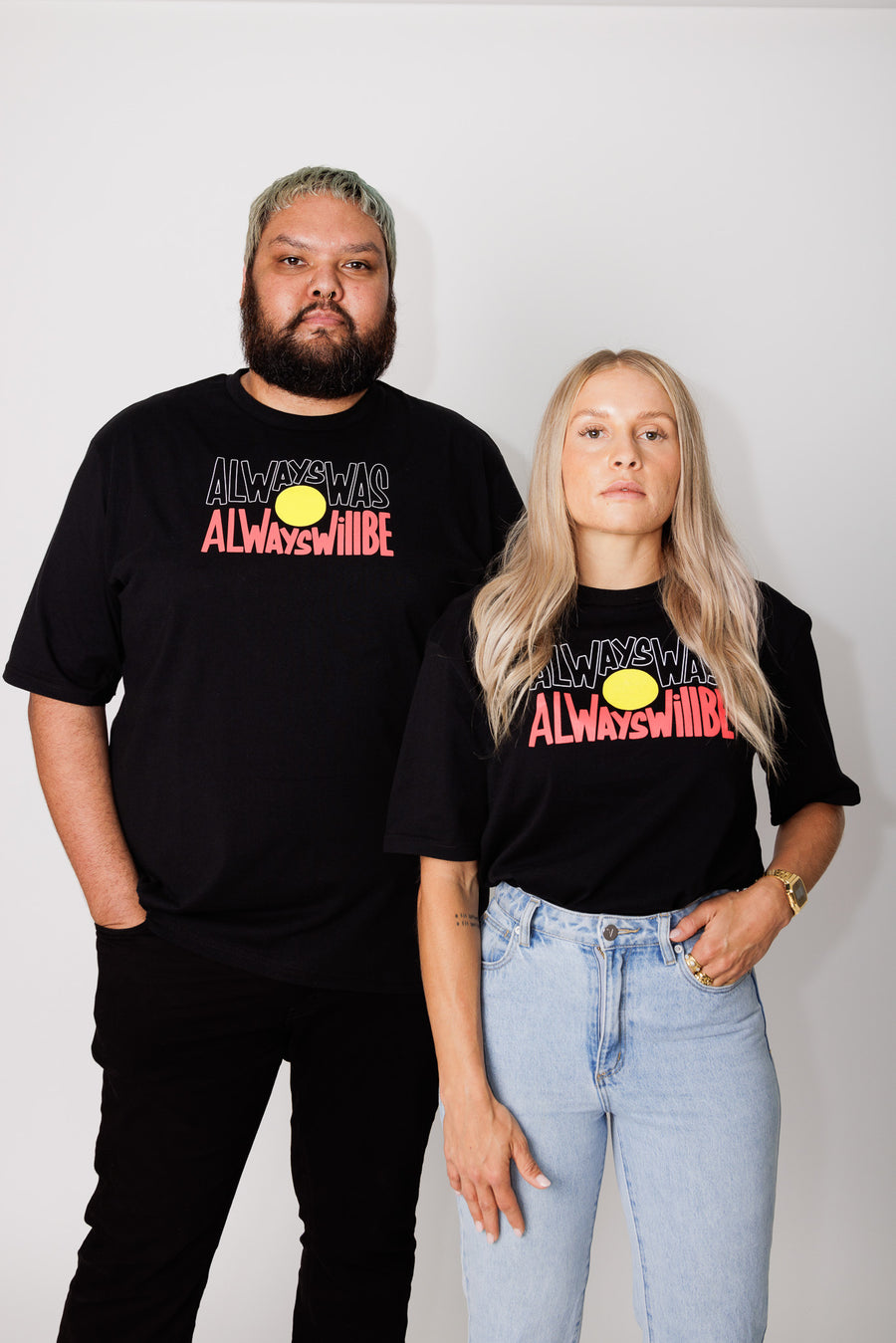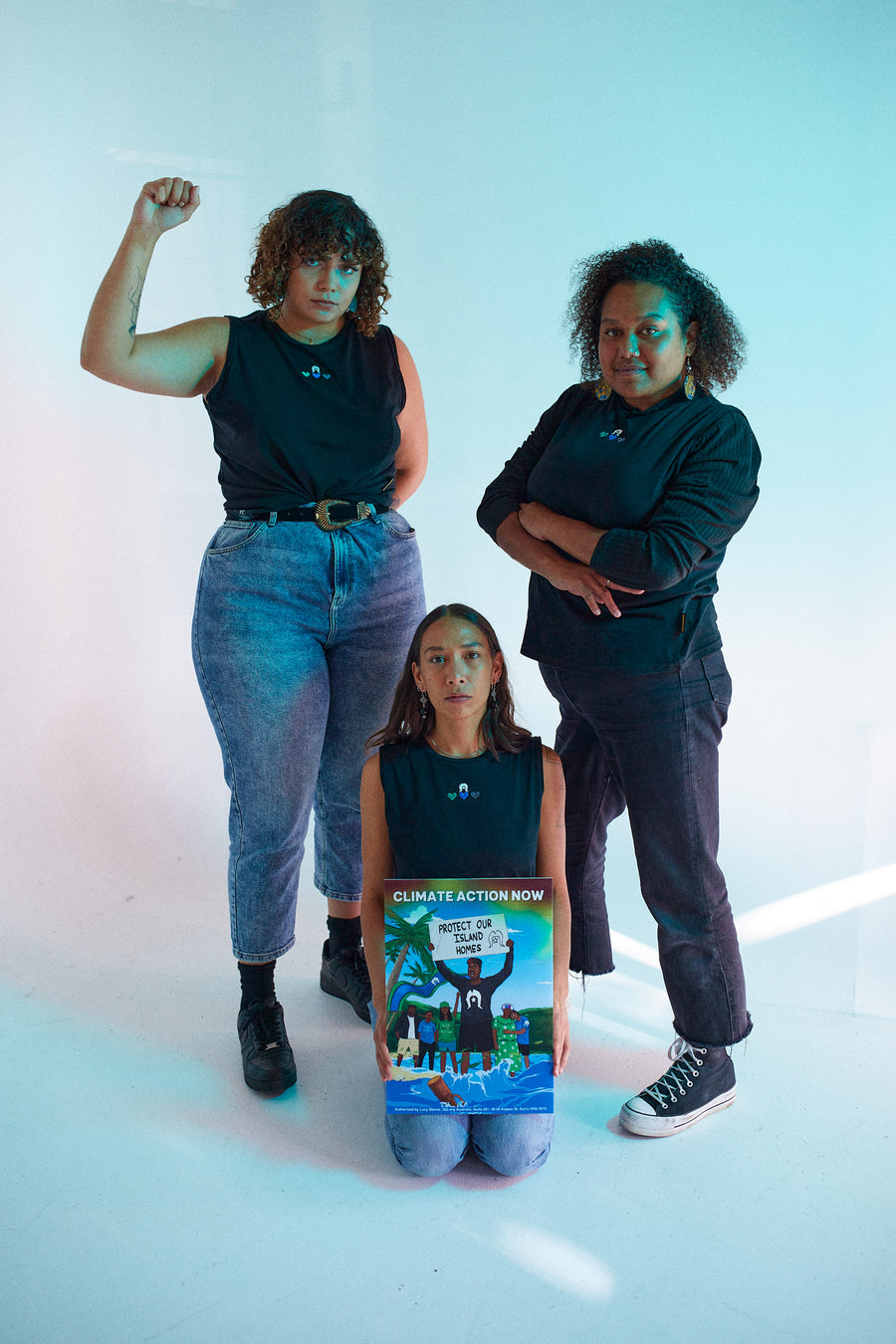8 things you need to know about Jan 26

Aboriginal and Torres Strait Islander people are advised the following article contains images of deceased persons.

January 26 is around the corner: A Day drenched in supremacy that sees the ignorance and indifference of the colony bubble to the surface as some dust off their polyester Australian flags, adorn their southern cross tattoos and marvel in joy as they watch their mates ladle as much beer and rum into themselves as humanely possible.
Associated with these rituals are displays of fireworks across the country, green and gold zinc, an anthem ignorantly declaring for decades that we are ‘young and free’ and patriots driving down the main street of their regional town bellowing out ‘Aussie, Aussie, Aussie’.
Don't forget the mass purchasing of single-use Australian souvenirs from Coles that join the VB cans left scattered across the sacred country and waters apparently being celebrated.
While this stereotypical image may not apply to everyone, what we do clearly see is many choosing to ignore the uncomfortable truths of the public holiday, sweeping them conveniently under the picnic rug on January 26th.
The question needs to be asked:
Whether intentionally or by default, this celebration of invasion and perpetuated colonialism is an annual placeholder that evokes feelings of deep anger, sadness and disappointment for many Aboriginal and Torres Strait Islander people, highlighting the continued colonial violence that has surpassed centuries, and the ignorance and lack of empathy present in Australia.
As Yorta Yorta, Ngurai Illum Wurrung, Dja Dja Wurrung and Wiradjuri musician and writer Neil Morris (DRMNGNOW) says, ‘if the true histories of this land…were understood from an empathetic and compassionate place collectively across society, Australia Day in its current format [could] not exist’.
Let’s dive into some of these histories.
- Why January 26 is significant.
Since 1994, January 26th has been celebrated as a public holiday in each state and territory as ‘Australia Day’. It is meant to observe the day that Captain Arthur Phillip ‘founded’ the penal colony of New South Wales on already occupied Aboriginal land in 1788, by raising an oversized Union Jack at Sydney Cove. Phillip was tasked with finding a suitable location to relocate convicts that had been exiled from Britain and in doing so disturbed, invaded, and occupied what we now know as Sydney.
As Gamilaraay Kooma woman Ruby Wharton expressed, ‘January 26 celebrates extreme violence and terrorism against First Nations people’.

Image: Ruby Wharton speaking at the Invasion Day Rally in Meanjin (Brisbane), 202. Photographer: Cathartic Camera
2. Australia was not an undiscovered empty continent.
January 26 marks the beginning of colonial violence, illegal occupation, dehumanisation, genocide and the dispossession and desecration of land.
On 22 August, 1770, Captain James Cook landed at Botany Bay claiming the discovery of what we now know as Australia, implementing the doctrine of terra nullius which translates to ‘land belonging to no-one’.
Cook however was well aware the country was occupied, as a journal entry just one day before reads ‘In the p.m. we saw the smoke of fire in several places; a certain sign that the country is inhabited’. Despite this, Cook continued his voyage and allowed news to reach across the seas that the ‘unknown southern land’ was a boundless place to share, uninhabited, and ready for occupation by the Commonwealth.
To affirm that Australia was discovered is to actively erase history and perpetuate terra nullius. Archaeological evidence ties Aboriginal people to the mainland of Australia over 65,000 years ago, but history books are laced with the false pretence of discovery to legitimise ongoing colonial invasion.
- Massacres, dispossession and genocide – British Settlement was far from peaceful.
It is estimated that between 1778 and 1900, the population of Aboriginal people decreased by a devastating 90%. British convicts brought with them smallpox, influenza, measles, tuberculosis and sexually transmitted infections, all of which Aboriginal and Torres Strait Islander people had no resistance or immunity to.
Despite the sugar-coated narratives of a peaceful British settlement, Aboriginal and Torres Strait Islander people actively resisted the British from the moment they invaded this country. The resistance, however, was met with brutal and calculated massacres against Aboriginal and Torres Strait Islander people, including children. We will never really know the number of Aboriginal and Torres Strait Islander lives lost in these massacres, but research from the University of Newcastle has found there were at least 270 state-sanctioned massacres over 140 years in an attempt to eradicate Aboriginal and Torres Strait Islander people.
More information about the resistance can be accessed through ‘Frontier Wars Stories’ —a podcast created by Gamilaraay and Kooma man Boe Spearim dedicated to truth-telling and sharing the side of history that has been left out. Another powerful resource centering First Nations voices ‘Survival Guide’ can be found on Radio Skid Row hosted by Wiradjuri and Gamilaroi woman Lorna Munro, and Wiradjuri person Joel Sherwood Spring.
- Australia Day has not always been celebrated on January 26.
Many Australians are fixated on the concept that the national day has been celebrated on January 26 since the union jack was first planted on Aboriginal land.
In actual fact, the first official national ‘Australia Day’ was observed on 30 July 1915 to raise funds for World War I. Over the years, states and territories have held the celebration on varying dates, and it wasn’t until 1994 that all states and territories across Australia landed on the national holiday – just a mere 29 years ago.

Image: ‘Australia Day’ handkerchief, 1915. Source: Australian War Memorial
5. Aboriginal people declared January 26 a Day of Mourning before it was ever celebrated as a national holiday.
In 1938, as governments across the country insensitively prepared to celebrate 150 years of ‘European settlement’, a large group of Aboriginal people donned black clothing as a sign of mourning and gathered in Sydney to protest against the mistreatment of Aboriginal people and against the ‘Whiteman’s seizure of [this] country’.
The Day of Mourning was one the first major civil rights gatherings in the world.
‘The 26th of January, 1938, is not a day of rejoicing for Australia’s Aborigines; it is a day of mourning. This festival of 150 years’ so-called “progress” in Australia commemorates also 150 years of misery and degradation imposed upon the original native inhabitants by the white invaders of this country’ – Uncle Jack Patten.
Led by the Aborigines Progression Association and the Australian Aborigines League, the Day of Mourning succeeded in raising national awareness about the conditions Aboriginal people were subject to, however pleas to boycott ‘Australia Day’ celebrations were blatantly ignored and continue to be ignored to this very day. We acknowledge the grassroots activists, organisers, and lobbyists who have continued this imperative resistance and fight for survival.

Image: Day of Mourning, 1938. Source: National Museum of Australia
The first measure of colonialism is to assume political and legal domination over an alien [sic] society.
By 1911, every state and territory in Australia had introduced 'protection’ policies which gave the government almost full control over the lives of Aboriginal and Torres Strait Islander people.
In 1915, the NSW Government gained the power to remove Aboriginal children from their families at any time and for any reason. It is estimated that under the false guise of protection, as many as one in three Aboriginal and Torres Strait Islander children were stolen from their families and placed into institutions, or with settler families, where they were subject to many forms of abuse and cheap or slave labour.
In addition to these humanitarian crimes, Aboriginal and Torres Strait Islander people were subject to harsh policies of segregation and assimilation. This included the freedom of movement, where we could live, the right to marry, and the right to speak to our own family members, practice culture and speak language—to name a few.
Under the approach of the assumption of black inferiority and white superiority, the government attempted to assimilate Aboriginal and Torres Strait Islander people into settler society, believing that Aboriginal and Torres Strait Islander people would die out through natural selection, and that ‘half-castes [sic] could be converted to a white citizen’. ‘Protection’ and ‘assimilation’ were purely euphemisms for genocide and dehumanisation.

Image: Walk for Walker outside Police Headquarters in Meanjin (Brisbane), 2019. Source: @worlds.illusions. Photographer: Shaun Daniel Allen (Shal).
- ‘It happened 200 years ago, get over it’. Here’s why we can’t just get over it.
It is important to recognise that colonialism is an ongoing process and isn’t a thing of the past. Colonialism did not end 200 years ago—it is prevalent today and has its roots deeply planted in every part of our society. As writer Nayuka Gorrie (Gunai/Kurnai, Gunditjmara, Wiradjuri and Yorta Yorta) wrote in this article for NITV in 2019, ‘[Colonialism] manifests in black incarceration rates, child removal rates, assimilation in the form of education and entertainment’.
Colonialism has introduced and perpetuated a society that normalises the structural oppression of Aboriginal and Torres Strait Islander people, while centering and benefiting settlers. Not convinced?
All you have to do is take a look at the systems that fail Aboriginal and Torres Strait Islander people across all endeavours – in health, education, employment, justice and politics for example. These systems were not designed for Aboriginal and Torres Strait Islander people to succeed in.
Alarmingly, we are 16.5 times more likely to die in police custody and somehow this is not considered a national priority.
The state is continuing to remove our children from their families at a disproportionate rate.
Despite the admiration and appreciation Australia has for its war heroes, we have a national War Memorial that will not officially recognise the Frontier Wars—the conflicts between Europeans and Aboriginal people, including battles, acts of resistance and open massacres from 1788 to the 1930s.
Reparations have not been made to the hundreds of Aboriginal and Torres Strait Islander people who had their wages stolen or who were subject to slavery –yes slavery happened in Australia too. Wage control is still happening today, as throughout some parts of this country, Aboriginal and Torres Strait Islander people do not have autonomy over their own income and have been forced to use cashless income management cards.
Many Aboriginal and Torres Strait Islander cultural heritage items are still overseas in British museums.
Our government is failing to address climate change severely threatening the Torres Strait Islands.
We are defamed and labelled as sooks for calling out blatant and covert racism, like when AFL player Adam Goodes was routinely booed at every match, forcing him to quit the sport.
We are still fighting for land rights and land protection against a government that allowed a 46,000-year-old sacred site to be destroyed by one of the biggest mining companies in the world.
We are expected to sing a divisive national anthem that dismisses history, even with its symbolic ground-breaking word change.
And as a cherry on top, James Cook and Arthur Phillip are immortalised in Sydney and in 2019 their statues received round the clock tax-payer funded protection at the height of the Black Lives Matter movement, despite the very movement centering black lives.

Image: Police officers standing guard around statue of James Cook in Sydney, 2020. Source: Saeed Khan/Getty Images
8. Let’s call Australia Day for what it is: a legacy of invasion and a day of survival.

Despite the governments mistargeted intentions, and the nice words that dance across the Australia Day Council website—Australia Day is not a harmonious celebration for all.
Australia Day does not foster truth-telling. Australia Day does not provide an appropriate reflection of history. Australia Day does not provide a day to gain a greater understanding of Aboriginal and Torres Strait Islander people. Australia Day does not celebrate diversity. Australia Day does not respect all people, nor does it address the continued impacts of colonial violence and continued oppression.
Our soil was stolen. Our land that abounds in natures gifts is constantly being fracked and permanently destroyed. Our people are dying young and at the hands of the people who are meant to protect us—yet we are expected to celebrate?
As said by Sophie Verass said in an opinion piece for NITV, let’s call Australia Day for what it is —a legacy of invasion and a ‘birthday for Anglo-Australia’. Australia was born on the bodies of Aboriginal people.
Regardless of the date Australia Day is held, Australia in its current existence continues to perpetuate systems structurally designed to oppress. When our highest Aboriginal and Torres Strait Islander rates aren’t in suicide, prisons and deaths in custody—then we may be a country worth celebrating. But until then, every day in this country is a day of survival.
‘It is important to remember that you cannot change the date and solve this issue. Australia Day must be abolished, white supremacy must be abolished, and every systemically racist institution must be abolished. Land back must happen for First Nations people, reparations must happen for First Nations people, repatriation must happen for First Nations people; recognition was never and will never be enough.’ –Ruby Wharton.
‘…for the few that choose to remain living in ignorance, it’s a sad thing to have to acknowledge that the colonial programming is indeed so deeply ingrained in some. But that needn’t be our problem, however. [Aboriginal and Torres Strait Islander people] are not the problem. We are a peaceful people at heart, and at some point, it’s about personal responsibility of people to relinquish their ignorance or choose to grow. Everyone has that choice - to be better.’ – Neil Morris.





I’m so upset that after reading this excellent piece the very first comment from Ian Bailey states “As the saying going Go to Bunnings, get some timber, build a bridge, get over it.” I’m so embarrassed that someone could read this and still have this attitude ….
So great to find this article, will be sharing this one to many friends
All nations have been invaded over thousands of years. Wrong it may be but we cannot fix the past! What we can do is recognise the advancements we’ve made. We are celebrating that as of 26/1 1949 we are all Australian citizens rather than British and indigenous. This should bring us together rather than deepen the divide!
Having read your article, I would now like to see your thoughts on how to promote a harmonious celebration for all. Education that shares the history and the ability to reflect on the impact of history should become part of the schooling curriculum thereby freeing up a day/date for celebration of this Nation.
WHAT IS SO SPECIAL ABOUT AUSTRALIA DAY?
Australia Day does not celebrate the arrival of the first fleet or the invasion of anything.
Captain Cook did not arrive in Australia on the 26th of January. The Landing of Captain Cook in Sydney happened on the 28th of April 1770 – not on the 26th of January 1770.
The First Fleet arrived in Botany Bay on the 18th of January. The 26th was chosen as Australia Day for a different reason; however, Captain Cook’s landing was included in Australia Day celebrations as a reminder of a significant historical event.
Since the extravagant bicentenary celebrations of 1988, when Sydney-siders decided Captain Cook’s landing should become the focus of the Australia Day commemoration, the importance of this date for all Australians has begun to fade.
Now, a generation later, it’s all but lost.
This is because our politicians and educators have not been doing a good job promoting the day. Our politicians have not been advertising the real reason for Australia Day, and our educators have not been teaching our children the importance of the 26th of January to all Australians.
The media, as usual, is happy to twist the truth for the sake of controversy.
In recent years, the media has helped fan the flames of discontent among the Aboriginal community. Many are now so offended by what they see as a celebration of the beginning of the darkest days of Aboriginal history, they want the date changed.
Various local Councils are seeking to remove themselves from Australia Day celebrations, even refusing to participate in citizenship ceremonies, and calls are going out to have Australia Day on a different day.
The big question is, why has the Government allowed this misconception to continue?
Captain Cook didn’t land on the 26th of January. So changing the date of any celebration of Captain Cook’s landing would not have any impact on Australia Day, but maybe it would clear the way for the truth about Australia Day.
The reality is, the Aborigines in this country suffered terribly under the hands of British colonialism. This is as much Australia’s history as the landing of the first fleet, and both should be remembered, equally. Both should be taught, side by side, in our schools.
Australians of today abhor what was done under British governance to the Aborigines. We abhor what was done under British governance to the Irish and many other cultures around the world.
So, after the horrors of WWII, we decided to fix it. We became our own people.
On the 26th of January 1949, the Australian nationality came into existence when the Nationality and Citizenship Act 1948 was enacted. That was the day we were first called Australians and allowed to travel with Passports as Australians.
Under the Nationality Act 1920 (Cth), all Aborigines and Torres Strait Islanders born after January 1, 1921, gained the status of British subjects. In 1949, therefore, they automatically became Australian citizens under the Nationality and Citizenship Act 1948.
Before that special date, all people living in Australia, including Aborigines born after 1921, were called ‘British Subjects’ and forced to travel on British Passports and fight in British wars.
We all became Australians on the same day!
This is why we celebrate Australia Day on the 26th of January!
This was the day Australians became free to make our own decisions about which wars we would fight and how our citizens would be treated. It was the day Aborigines were declared Australians.
Until this date, Aborigines were not protected by law. For the first time since Cook’s landing, this new Act gave Aboriginal Australians by inference and precedent the full protection of Australian law.
Because of this Act, the government became free to help Aborigines, and since that day much has been done to assist Aboriginal Australians, including saying ‘sorry’ for the previous atrocities done before this law came into being.
This was a great day for all Australians!
This is why the 26th of January is the day new Australians receive their citizenship. It is a day which celebrates the implementation of the Nationality and Citizenship Act of 1948 – the Act which gave freedom and protection to the first Australians and gives all Australians, old and new, the right to live under the protection of Australian Law, united as one nation.
Now, isn’t that cause for celebration?
Education is key! There is a great need for education on the real reason we celebrate Australia Day on the 26th of January. This reason needs to be advertised and taught in schools. We all need to remember this one very special day in Australia’s history, when freedom came to all Australians.
What was achieved that day is something for which all Australians can be proud!
We need to remember both the good and the bad in our history, but the emphasis must be the freedom and unity all Australians now have, because of what was done on the 26th of January 1949, to allow all of us to live without fear in a land of peace.
Isn’t it time all Australians were taught the real reason we celebrate Australia Day on Jan 26th?
Leave a comment